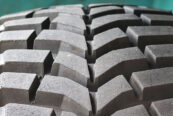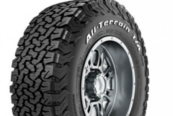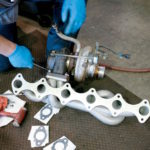Summer tires, also known as performance tires or high-performance tires, are designed to provide optimal handling, traction, and responsiveness in warm weather conditions. These tires are specifically engineered to perform well on both wet and dry roads in hot temperatures. While summer tires are not suitable for use in cold or snowy conditions, they offer many benefits during the warmer months of the year.
Benefits of Summer Tires
1. Improved Handling: Summer tires are designed to provide excellent handling in warm weather. They have a softer rubber compound that provides better grip on the road, which means you can take corners and curves with more confidence.
2. Increased Traction: The tread pattern on summer tires is designed to provide improved traction on both wet and dry roads. The grooves in the tires help to channel water away from the tire, reducing the risk of hydroplaning on wet roads.
3. Better Braking: The soft rubber compound used in summer tires provides a better grip on the road, which translates to shorter stopping distances. This means you can stop your vehicle more quickly in an emergency situation.
4. Enhanced Performance: Summer tires are designed to enhance the performance of your vehicle. They offer better acceleration and speed capabilities, allowing you to enjoy a more thrilling driving experience.
5. Improved Fuel Efficiency: Because summer tires are designed to provide better handling, traction, and performance, they can help improve your vehicle's fuel efficiency. With better handling, you'll be able to maintain a more consistent speed on the highway, which can reduce your fuel consumption.
When to Use Summer Tires
Summer tires are designed for use in warm weather conditions. They are not suitable for use in cold or snowy conditions, as the soft rubber compound used in summer tires will become hard and less effective in colder temperatures. The ideal temperature range for summer tires is between 45 and 90 degrees Fahrenheit.
It's important to switch to summer tires once the temperature consistently stays above 45 degrees Fahrenheit. Using winter tires in warm weather conditions can cause excessive wear and tear on the tires, reducing their lifespan and effectiveness.
Types of Summer Tires
There are several types of summer tires available, each designed for specific types of vehicles and driving conditions. Some of the most common types of summer tires include:
1. Ultra-High Performance Summer Tires: These tires are designed for high-performance cars and offer excellent handling, traction, and speed capabilities.
2. High Performance Summer Tires: These tires are designed for sports cars and performance sedans. They offer improved handling and traction, as well as increased speed capabilities.
3. Touring Summer Tires: These tires are designed for luxury sedans and provide a quiet and comfortable ride, as well as excellent handling and traction in warm weather conditions.
4. Grand Touring Summer Tires: These tires are designed for high-performance touring vehicles and offer a balance of handling, traction, and comfort.
How to Choose the Right Summer Tires
When choosing summer tires, it's important to consider the following factors:
1. The type of vehicle you have: Different types of vehicles require different types of summer tires. Make sure you choose tires that are specifically designed for your vehicle.
2. The driving conditions: Consider the driving conditions you'll be encountering. If you live in an area with frequent rainfall, you'll want to choose tires with a tread pattern designed to channel water away from the tire.
3. The type of driving you'll be doing: If you plan on doing a lot of highway driving, look for tires that offer good fuel efficiency and a comfortable ride. If you plan on doing a lot of spirited driving, look for tires that offer excellent handling and traction.
4. The tire size: Make sure you choose tires that are the right size for your vehicle. You can find the tire size information on the sidewall of your current tires.
Conclusion
Summer tires offer many benefits during warm weather conditions. They provide improved handling, traction, and responsiveness, as well as enhanced performance and fuel efficiency. When choosing summer tires, it's important to consider the type of vehicle you have, the driving conditions you'll be encountering, and the type of driving you'll be doing. By choosing the right summer tires, you can enjoy a safer and more enjoyable driving experience during the warmer months of the year.











